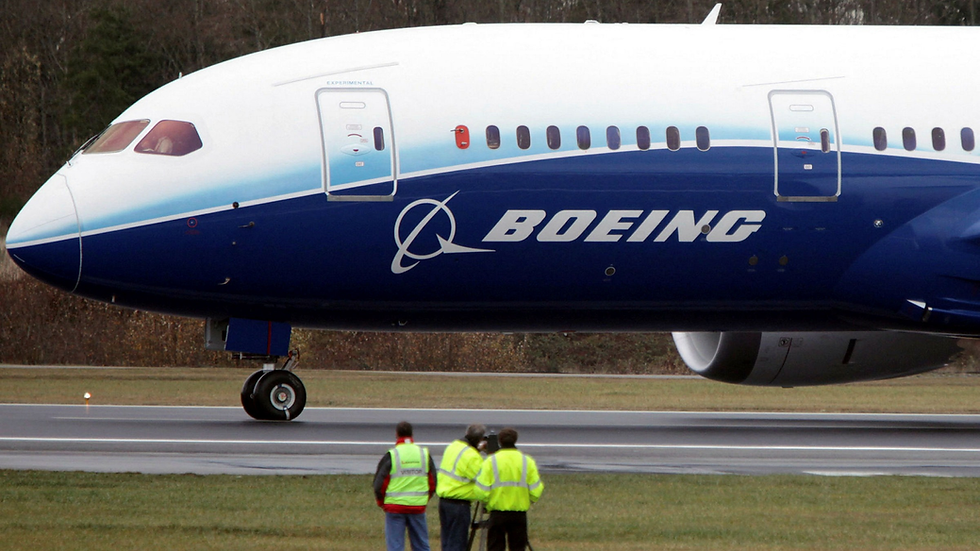Boeing was fined $200M for materially false representations regarding catastrophic aircraft disaster
- Sep 26, 2022
- 4 min read
The Securities and Exchange Commission (SEC) accused Boeing of deceiving investors about the circumstances surrounding two 737 MAX disasters that occurred in 2018 and 2019 and resulted in the deaths of 346 people. Boeing agreed to pay $200 million to resolve the SEC's allegations.

The Maneuvering Characteristics Augmentation System (MCAS), a flight control system on the 737 MAX aircraft, was determined to have contributed to two crashes—one in Ethiopia in 2019 and one in Indonesia in 2018, according to the SEC's findings about Boeing and its former CEO, Dennis Muilenburg.
The SEC stated in a press release on Thursday that Boeing and Muilenburg guaranteed the public that the 737 MAX aircraft was "as safe as any airplane that has ever flown the skies" while knowing that MCAS constituted an ongoing airplane safety issue. "Later, following the second crash, Boeing and Muilenburg assured the public that there were no slips or gaps in the certification process with respect to MCAS, despite being aware of contrary information."
Globally operating 737 MAX aircraft were grounded for over two years following the second tragedy as Boeing and airline safety experts worked to understand what went wrong with the flight control system and how to fix it. Except for China, the majority of the world's airspace saw the return of the aircraft in 2021.
In the announcement, SEC Chair Gary Gensler said, "There are no words to describe the tragic loss of life brought about by these two airplane crashes. In times of crisis and tragedy, it is especially important that public companies and executives provide full, fair, and truthful disclosures to the markets. The Boeing Company and its former CEO … failed in this most basic obligation. They misled investors by providing assurances about the safety of the 737 MAX, despite knowing about serious safety concerns."
According to the SEC, federal securities laws' antifraud provisions were recklessly broken by Boeing and Muilenburg. Boeing and Muilenburg agreed to the agency's cease-and-desist orders without disputing or refuting its conclusions. Muilenburg consented to pay a fine of $1 million.
The SEC concentrated on remarks Muilenburg and Boeing made in public, alleging that they contained materially false information. The first statement in question was released in November 2018, following the Indonesian tragedy that claimed the lives of 189 passengers and crew.
Boeing had at that time "determined that MCAS posed an ongoing safety issue that required remediation; indeed, Boeing had already begun work on a redesign of the MCAS software to address the safety issue. However, the press release made no mention of the MCAS safety issue or planned software redesign," the SEC stated in its order.
After the Ethiopian Airlines crash, Muilenburg made a second set of false representations, according to the SEC's decision. During Boeing's first-quarter earnings call in April 2019, an analyst questioned Muilenburg about how the MCAS problems evaded both the Federal Aviation Administration and the company's technical department (FAA).
There was "no surprise or gap or unknown here or something that somehow slipped through a certification process," according to Muilenburg. "Quite the opposite. We know exactly how the airplane was designed. We know exactly how it was certified. We have taken the time to understand that."
In response to a query on the MCAS faults at a press conference five days later, Muilenburg once more stated, "[W]e followed exactly the steps in our design and certification processes that consistently produce safe airplanes. It was designed per our standards. It was certified per our standards."
The SEC said that Muilenburg's remarks were false because they left out a conversation between two Boeing workers that took place in November 2016 and in which they discussed how they had identified the MCAS issue during a flight simulation but had not yet informed regulators of it. The ruling stated that the FAA's evaluation and approval of pilot training requirements and flight manuals for the 737 MAX never mentioned the extension of MCAS's capabilities to regulators.
According to the SEC's ruling, Muilenburg was aware of the November 2016 conversation and the MCAS expansion.
In relation to the press release from November 2018 and the statements from April 2019, Boeing "failed to exercise reasonable care," the agency claimed.
In order to address a criminal accusation connected to the 737 MAX crisis, Boeing paid the Department of Justice (DOJ) more than $2.5 billion in January 2021 as part of a three-year deferred prosecution deal. In addition to making payments to impacted airline customers and the relatives of deceased passengers, the firm also paid a criminal fine.
The DOJ gave Boeing credit for taking corrective actions in response to the misbehavior, including:
1. Establishing a permanent aerospace safety committee inside the board of directors to supervise the organization's safety policies and practices as well as its dealings with the FAA and other government agencies and regulators;
2. Establishing a product and services safety organization to bolster and consolidate the safety-related tasks that were previously spread out across Boeing;
3. Reorganizing the engineering function so that all Boeing engineers and the flight technical team report through the chief engineer rather than the business units;
4. Making structural changes to the flight technical team to improve the supervision, efficiency, and professionalism of technical pilots.
In an email, a spokesperson for Boeing said it would "never forget those lost" on the two flights and that it had implemented "broad and deep changes across our company in response to those accidents—fundamental changes that have strengthened our safety processes and oversight of safety issues and have enhanced our culture of safety, quality, and transparency."
According to the statement, "Today's settlement (with the SEC) is part of the company's broader effort to responsibly resolve outstanding legal matters related to the 737 MAX accidents in a manner that serves the best interests of our shareholders, employees, and other stakeholders."
By fLEXI tEAM





Comments